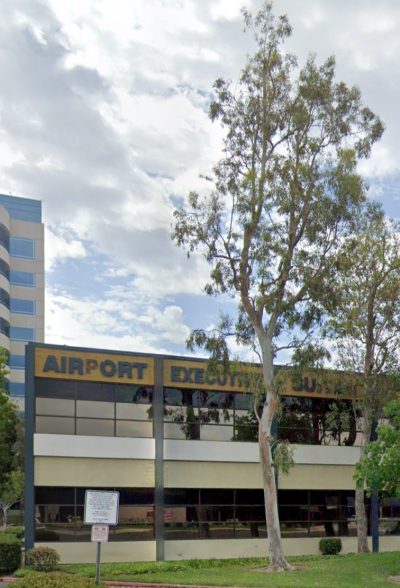If you are a US citizen, permanent resident or tax resident and your Swiss bank has requested that you disclose your account on the US Foreign Bank Account Report (FBAR) – or has requested information on your past or present US tax compliance – you may have just a matter of days before the June 30, 2014 deadline when your institution could report your information to the IRS.
If you wait until this happens, you will be exposed to severe criminal and financial consequences!
You have options to obtain tax amnesty under a special IRS program for unreported foreign bank accounts. Call (415) 745-1924 to speak with experienced Offshore Voluntary Disclosure Program tax attorney Andrew L. Jones. You will receive an immediate, free, thorough, and completely confidential consultation. We are available by phone nationwide and can seamlessly manage your federal disclosure no matter where you live in the United States. We serve Swiss bank disclosure cases from 4 different offices throughout California and will travel when necessary to work with out-of-state clients. Please call us any time from 8 am-9 pm Pacific, 7 days a week at (415) 745-1924. After hours, please leave a message or visit our contact form and we will reply the next morning.
With the help of The Law Offices of Andrew L. Jones, you can discover whether you’ve committed an FBAR reporting violation. If you have, we can solve it quickly and for the least possible cost.
According to pre-eminent tax crimes attorney Jack Townsend, the list of banks affected by the Department of Justice’s program (whether as non-participating ‘criminal’ banks, or as participating Categories 2-4 banks subject to varying deadlines) include:
| Swiss Bank | Category |
| Aargauische Kantonalbank | 2 |
| acrevis Bank AG | 4 |
| AEK Bank 1826 | 4 |
| Appenzeller Kantonalbank | 4 |
| Baloise Bank SoBa | 3 |
| Bank am Bellevue | 3 |
| Bank Coop AG | 2 |
| Bank Frey | Criminal |
| Bank Hapoalim (Switzerland) | Criminal |
| Bank Julius Baer | Criminal |
| Bank Leumi (Switzerland) | Criminal |
| Banque Cantonale de Fribourg | 2 |
| Banque Cantonale de Genève | 2 |
| Banque Cantonale du Jura | 2 |
| Banque cantonale du Valais | 2 |
| Banque Cantonale Neuchâteloise | 2 |
| Banque Cantonale Vaudois | 2 |
| Banque Privee Edmond de Rothschild | 2 |
| Barclays Bank (Suisse) SA | 2 |
| Barclays Bank plc Geneva Branch | 2 |
| Basellandschaftliche Kantonalbank | 2 |
| Basler Kantonalbank | 3 |
| Baumann & Cie | (Unknown) |
| Berner Kantonalbank | 2 |
| BSI Group | 2 |
| Cembra Money Bank AG | 2 |
| Cornèr Banca SA | 2 |
| Credit Suisse AG | 3 |
| Edmond de Rothschild Group | 2 |
| EFG International AG | Criminal |
| Glarus Bank | 2 |
| Goldman Sachs (Swiss Unit) | 2 |
| Graubündner Kantonalbank | 2 |
| HSBC Private Bank (Suisse) | 2 |
| Hyposwiss Privatbank Zurich AG | 4 |
| Hyposwiss Private Bank Geneve SA | 2 |
| Liechtensteinische Landesbank (Switzerland) Ltd. | 2 |
| Linth Bank | Criminal |
| Lombard Odier & Cie. | 2 |
| Luzerner Kantonalbank | 2 |
| Maerki Baumann AG | 2 |
| Migros Bank AG | 2 |
| Mizrahi-Tefahot (Switzerland) | Criminal |
| Morgan Stanley (Swiss Unit) | 2 |
| Neue Zürcher Bank | 2 |
| Nidwaldner Kantonalbank | 2 |
| Notenstein Privatbank Ltd. | 2 |
| Obwaldner Kantonalbank | 2 |
| Pictet & Cie | 2 |
| Piquet Galland & Cie SA | 2 |
| Post Finance | 2 |
| Rahn & Bodmer | Criminal |
| Raiffeisen | 3 |
| Rothschild Bank AG, Zurich | Criminal |
| Saanen Bank | 2 |
| Schaffhauser Kantonalbank | 3 |
| Schroder & Co Banque SA | 4 |
| Schwyzer Kantonalbank | Criminal |
| St. Galler Kantonalbank | 2 |
| Ticino Cantonal Bank | 2 |
| Trafina Privatbank | 2 |
| Union Bancaire Privee | Criminal |
| Valartis Bank (Switzerland) | 3 |
| Valiant Holding AG | 2 |
| Vontobel Holding AG | 2 |
| VP Bank (Switzerland) | 2 |
| Walliser Kantonalbank | 2 |
| Zuger Kantonalbank | 2 |
| Zürcher Kantonalbank | 2 |
How do I know if I committed an FBAR violation and should consult with a tax attorney immediately?
If you can answer ‘yes’ to the following four questions, you very likely have committed one or more FBAR violations and require the services of a skilled OVDP tax attorney:
1. You are now or in the last six years were a US citizen, a US permanent resident (‘green card’ holder) or a US tax resident
2. In one or more years since 2008, you owned or controlled a foreign financial account of any kind
(Foreign financial accounts are any of the following types of accounts held with an institution located outside the US: checking and/or savings, brokerage account, investment account, private wealth management account, certificate of deposit/time deposit, cash-value life insurance or annuity, or options or commodity futures account)
3. Your foreign account(s), at any time in the year(s), aggregated (totaled) in excess of $10,000 (US dollars)
4. In the year(s) when conditions 1-3 were met, you did not report the existence of the account to the IRS via the Foreign Bank Account Report (formerly titled TD F 90-22.1, now filed online as FinCEN 114) and/or since 2011, you did not report these same details (and others) on the IRS’ Form 8938 (‘Statement of Specified Foreign Financial Assets’)
Failing to report foreign bank and financial accounts is a significant civil violation and could also expose you to criminal prosecution.
Civil FBAR penalties
– The penalty for a willful failure to file is equal to the greater of $100,000 or 50% of your undisclosed foreign accounts’ value. The IRS has indicated that it may impose this penalty cumulatively for up to six years, and in recent cases has imposed the 50% penalty for two years running.
– $10,000 per account, per violation for non-willful (negligent) failure to failure where the taxpayer can show no reasonable cause for the failure to file.
– Finally, in narrow circumstances that an OVDP tax attorney is best equipped to analyze and review, a taxpayer may obtain a no-penalty result if he/she shows there was reasonable cause for the failure to file.
Criminal FBAR penalties
– If the IRS determines that your failure to file the FBAR was willful, and the failure to report your foreign financial account also resulted in your not reporting a significant amount of taxable earnings to the US, you are at risk for prosecution both under the laws governing FBAR violations and the laws governing standard criminal tax prosecution (found in Title 26 of the United States Code). Only an attorney can competently advise you on these issues. This is why you must consult with an attorney – discussions with a CPA or any other non-attorney is not fully confidential and risks disaster.
Why Choose An Experienced Offshore Voluntary Disclosure Program Attorney?
A skilled tax attorney with experience in foreign account reporting and voluntary disclosures will analyze your specific situation and provide a specific solution. A good OVDP tax attorney will provide you with written advice that reviews your specific facts and circumstances, the various options for addressing your foreign account reporting problem, and recommends the best solution after intensive discussion about your particular priorities.
Everything that you discuss with a tax attorney is protected by the robust attorney-client privilege. This is not true if you make the mistake of consulting with any non-attorney, even a CPA. If you know that you will need to file amended returns under the OVDP and already work with a trusted CPA, you should still hire an attorney, who will then retain that accountant under a Kovel letter that extends attorney-client privilege to the accountant’s work.
What does an OVDP tax attorney do for you?
At a minimum, your OVDP tax attorney will determine:
– Did you actually have an FBAR reporting obligation? Your tax attorney will determine whether you actually had an obligation to file a Foreign Bank Account Report. Sometimes a taxpayer’s reporting obligation is very obvious, but in many more cases, a tax attorney’s detailed analysis of your specific facts and circumstances will confirm that your account was not, for any number of reasons, reportable.
– Your options for solving your FBAR problem. If you did have an undisclosed foreign account and FBAR violations, the tax attorney’s written report will present the various tax solutions and discuss the strengths and weaknesses of each.
You need a trustworthy expert to guide you through this stressful process. If you choose to enter the IRS’ Offshore Voluntary Disclosure Program, your tax attorney will be your guide through this complex process and ensure that every one of the dozens of necessary documents is prepared correctly and on-time.
What is OVDP?
OVDP is a special program established by the IRS that, if you qualify, can essentially eliminate your risk of criminal prosecution for tax crimes (which include failure to file, failure to report, and separate FBAR criminal prosecution). OVDP provides you tax amnesty, allowing you pay the IRS a mix of tax, interest and penalties and eliminate the civil and criminal exposure arising from your FBAR violations.
Do you qualify for one of the special money-saving OVDP penalty categories?
A tax attorney’s assistance during your participation in the OVDP is also critical because a tax attorney is best qualified to argue convincingly and successfully to the IRS that you qualify for the program’s special 5% or 12.5% penalty categories, or, as mentioned previously, qualify for a no-penalty result because you had reasonable cause for your failure to file.
OVDP Opt-Out
If the IRS’ position – and the tax, penalties and interest they want to collect – is unreasonable, you need a skilled advocate who can advise you on two critical issues:
– Whether leaving the OVPD program (‘opting out’) is a reasonable or unreasonable risk, in light of all your specific facts and circumstances and specific statutory and case law, and,
– Guiding you through the actual opt-out, which results in the opted-out taxpayer undergoing a full, standard tax audit, and representing you to your best possible result during that audit,
Your tax attorney is best-qualified to advise you whether opting-out of the program is in your best interests, since opt-out means that you will then be subject to a regular audit and will argue for non-willful penalties ($10,000 per violation) or the no-penalty exception of ‘reasonable cause.’
Tax Attorney Andrew L. Jones – OVDP Experience
I earned my J.D. and LL.M. in Taxation, with distinction, from Loyola Law School, Los Angeles, and have been in practice since 2009 with an emphasis in international taxation and foreign account reporting controversies.
I have assisted taxpayers with undisclosed foreign accounts in countries around the globe, including UK, Swiss, German, French, Chinese, Malaysian, Philippines and Japanese accounts. My clients include those with large private wealth management accounts in Switzerland’s most notorious criminal banks – banks that are under active US criminal investigation and banks that employed account managers now under US criminal indictment.
I continually monitor this specialized field of tax law. My articles on OVDP have been published in the Nob Hill Gazette (article written for individuals with undisclosed foreign accounts) and San Francisco Lawyer, the official quarterly magazine of the Bar Association of San Francisco (article written for non-tax attorneys who learn of clients with unreported offshore accounts). This expertise allows me to provide a prompt and brutally-honest assessment of my clients’ current civil and criminal tax risks.
In terms of account values, I have advised clients with hidden bank accounts ranging in value from $15,000 to high seven figures.
My clients have come to me with an enormous variety of additional factors complicating their offshore voluntary disclosures. I have assisted them all, including:
– OVDP clients who are divorced, separated, and estranged from spouses.
– Husband-wife clients.
– Clients who received their accounts via a foreign inheritance.
– Clients who survived the Holocaust or who have other non-tax avoidance reasons for holding hidden foreign accounts.
– Clients who did not know of their obligation to report their accounts on the FBAR, or had a good-faith misunderstanding of the FBAR and/or US taxation of foreign bank account earnings.
– Elderly clients and their adult children/caretakers.
– Clients with signature authority over (but no beneficial interest) in hidden foreign bank accounts or with interest in foreign corporations, trusts or partnerships that controlled undisclosed foreign bank accounts.
– Clients who are US permanent residents (resident aliens) and are anticipating or are already in the process of acquiring US citizenship when they discover the issue of undisclosed foreign accounts.







